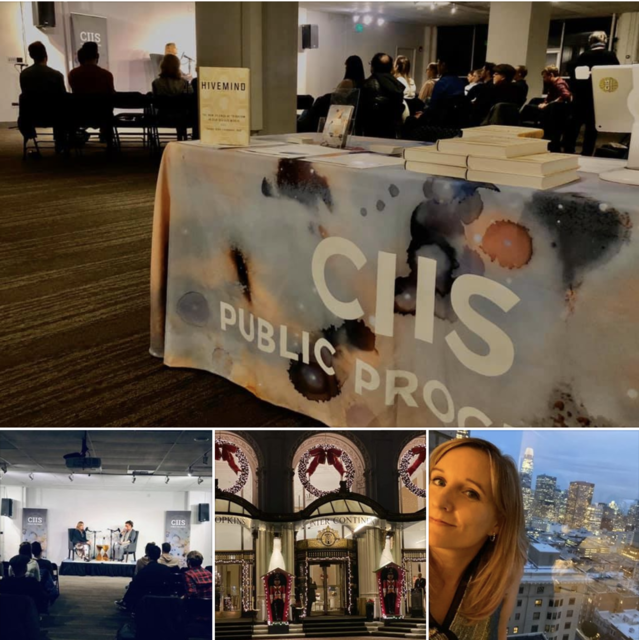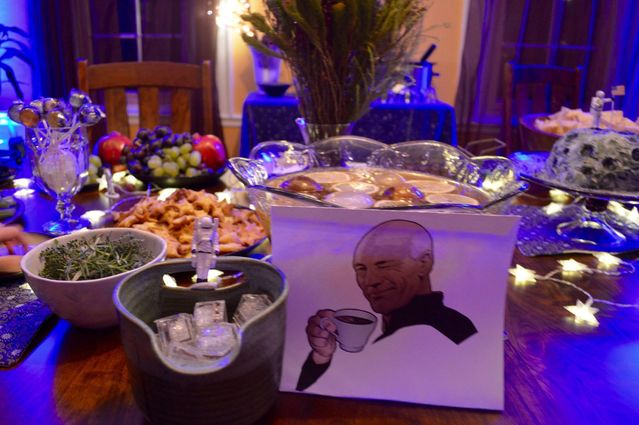Media
Don’t Resolve to Use Social Media Less
Resolve to use it better.
Posted January 1, 2020 Reviewed by Ekua Hagan
“Sounds like this quack is hamster-wheeling her little pea brain in overdrive to justify her Tinder/Facebook/Twitter attention-whoring crimes against logic.”
“You may have a Ph.D. but you are obviously lacking skills in observation and common sense. This piece of garbage 'smartphone' I type on now, and the 'information' it continuously crams down the throats of all who use it, are what is destroying not only our youth but our society and humanity as a whole.”
These are just two of the lovely comments I received on a piece I wrote for Psychology Today critiquing the idea that smartphones and social media unilaterally spell damage to our well-being.
Most of the comments on the piece were similarly filled with fiery outrage at the idea that these modern inventions could be anything but tools of destruction. Lest you think that this hyperbole is restricted to the notoriously-vicious world of online comments sections, I present to you a recent essay for The New York Times, which quoted a previous social media executive assistant: “I am convinced the devil lives in our phones and is wreaking havoc on our children.”
The devil himself.

“Disconnected,” wrote another commenter on my post, “self-absorbed, hunched over, time-wasting, drivel-spewing, and distracted is the best way to describe the average person these days who is smartphone-addicted.”
When you write a book about the not-all-terrible effects of smartphones and social media (as I have), you find that you risk not just the ire of public trolls but also that of family and friends. Everyone has an opinion about the topic, and these opinions spell a story about smartphones, social media, and mental health that is not just somewhat negative but profoundly so.
But is it based in reality? Not really.
A crucial part of the story that is almost never reported is that just like there are certain volumes and habits of use that are associated with poor outcomes, there are also volumes and habits of use associated with good outcomes — and said volume is not zero.
My best reading of the evidence at this time suggests we should approach use of these technologies through a principle I call, “enhance, don’t eclipse” — that is, the healthiest outcomes are predicted when you use your smartphone in order to enhance or augment your existing social relationships, and the unhealthiest outcomes are predicted when you use these technologies in ways that interfere with or replace said face-to-face connections.
At the same time, when considering the larger question about the effects of social technology on our collective well-being, my own process in writing and promoting my book on the topic has been one that leads to more pessimism by the day.
I recently had a wonderful conversation with interlocutor Zara Zimbardo and an audience at the California Institute of Integral Studies (CIIS). When the conversation turned to the impact of social media, I chose to address the negatives first and then the positives so as to end on a high note.
The trouble was, the negatives took a lot more time and were much more intense than the positives — conspiracy theories, nationalism and white supremacy spreading like cancer, online harassment, polarization, privacy threats, dehumanization, FOMO. The list grows by the day.

We have chosen to take our world online and brought all of our flawed humanity with it. Taking things online has likely amplified both the negatives and many of the positives of our ultrasocial selves.
But at the end of the day, social media is not going anywhere. Why not spend our energy talking about ways to improve it?
My cousin and paleoclimatologist Summer Praetorius recently published an essay in Nautilus in which she argues that there is a multitude of ways of thinking about the best approaches to climate change — and that rather than endlessly argue about which is the superior path to follow, we probably need all of them.
“What if instead of feeling threatened by differences in opinion, we were to reconceptualize them in much the same way a tree will distribute a canopy to collect as much sunlight as possible — as a multi-pronged approach to getting the job done?” — Summer Praetorius
Also similar to climate change, we are unlikely to solve the toxic social media atmosphere with solo actions — individual acts of kindness or personal decisions to deactivate our Facebook accounts. What we really need are not grassroots efforts but changes in policy and regulation, and so our choices at the voting box probably have more impact than our daily recycling practices.
We also need more thinking and work like this brilliant set of proposals from Tobias Rose-Stockwell on how to improve social media. Most likely we should listen to Siva Vaidhyanathan when he tells us that the “problem with Facebook is Facebook” and we need better platforms or a new approach to social media entirely. Certainly, I agree that the social media giants bear the great responsibility that they are not owning, and need to be brought to heel.
But just because our individual actions hold less weight than large-scale policy changes doesn’t mean we that can’t, and shouldn’t, try. Social media is, at the end of the day, an accumulation of all of our individual actions and thoughts and images, shared and reshared. Much has been made of the saying that when you don’t pay for a product, you are the product. But at the same time, we also bear some responsibility in creating the product itself.
Our individual actions, enacted collectively, shape these platforms.
So rather than binning all our smartphones and deleting all our profiles, we should instead feel free to engage with our social partners and share delights from our days while also dialing back on the over-application of moral outrage, checking for misinformation before sharing links, and fighting back against threats to our privacy, especially those that reinforce already existing social inequities.
I suggested in the headline that you should resolve to use social media better rather than less — but this is actually a false binary. You can use social media both less and better. I’m all for intelligent, intentional moderation in one’s screentime habits. Just ask my 13-year-old.
But I also prefer to live in a world where I can engage with amazing scholars and thinkers and creators on Twitter, see my niece’s happy smile on Christmas morning on Instagram, and source awesome Halloween theme party decor on Pinterest.

My resolution is, therefore, not necessarily less but better.




